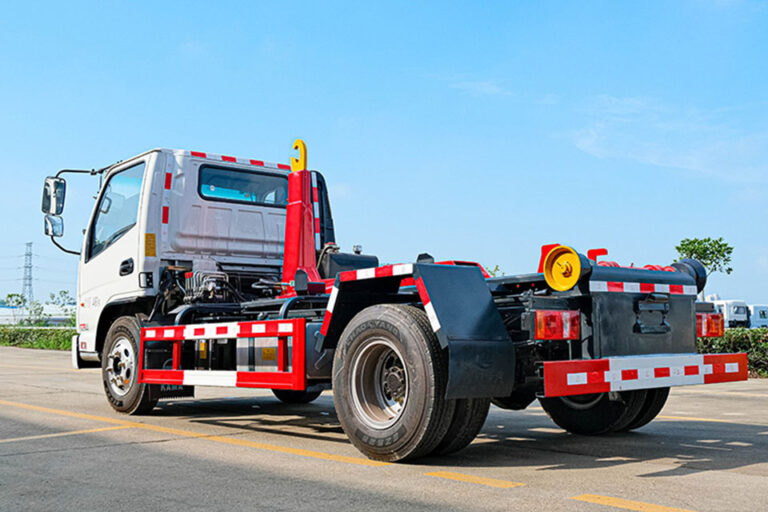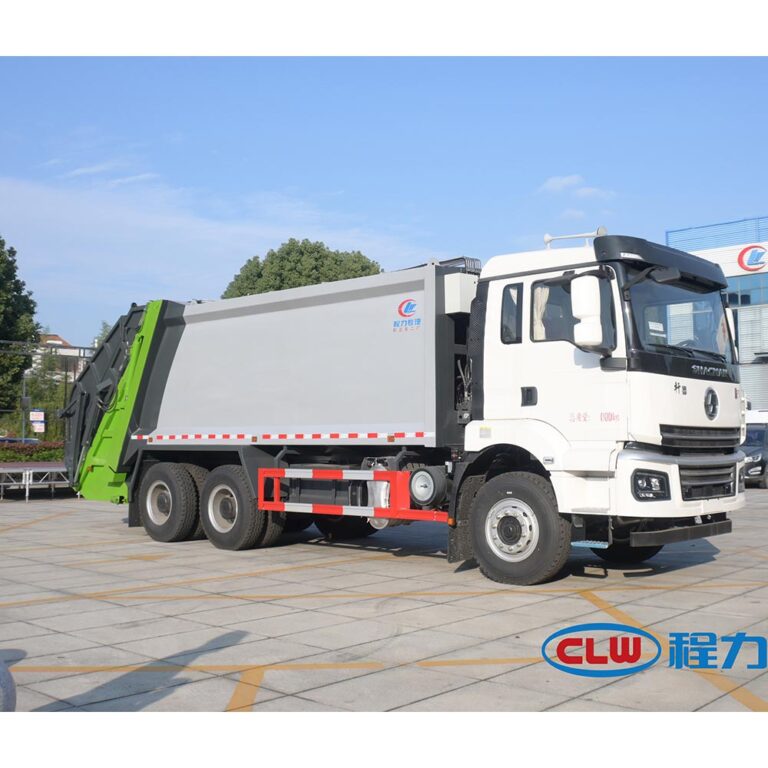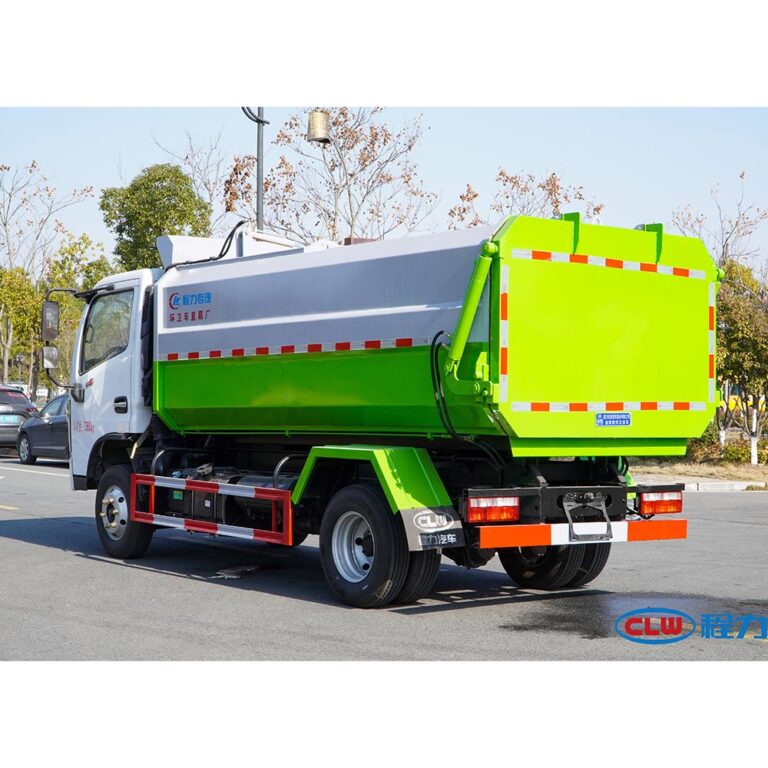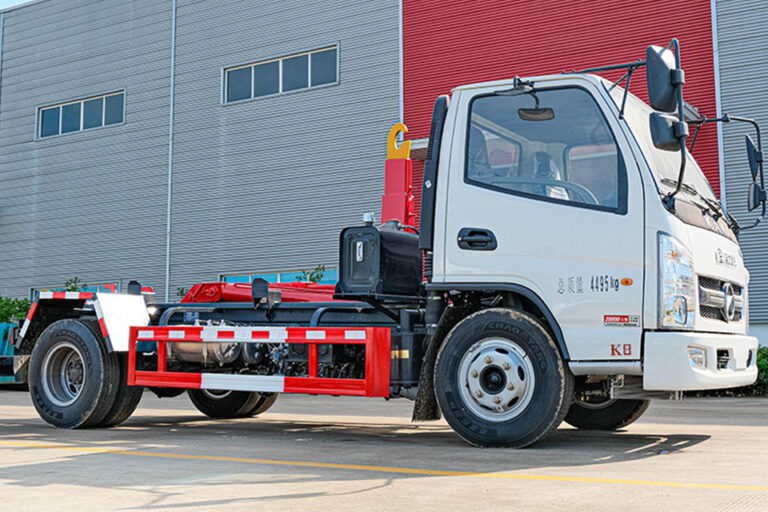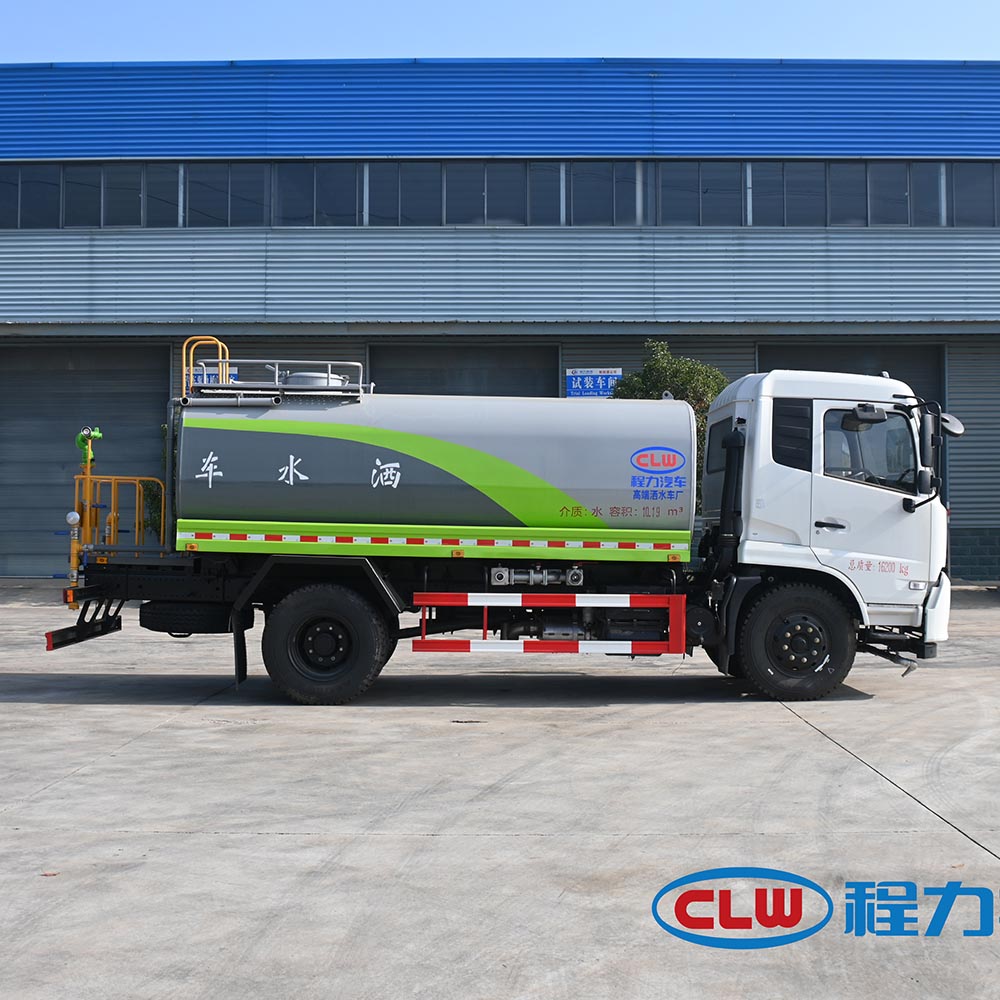
que tipo de camião é utilizado para transportar água
Camião cisterna de água: Tudo o que precisa de saber sobre as 5 principais utilizações
Este artigo explora os aspectos essenciais dos camiões cisterna, destacando as suas diversas aplicações e explicando porque é que esta informação é crucial para várias indústrias. Da construção à assistência em catástrofes, compreender as capacidades destes veículos especializados pode ter um impacto significativo na eficiência e segurança operacionais. Continue a ler para saber como um camião de água pode servir as suas necessidades específicas e por que razão é vital tomar uma decisão informada.
Índice
O que é um camião cisterna de água?
A camião cisterna de água é um veículo especializado concebido para transporte e distribuição de água. Estes camiões estão equipados com um grande reservatório de água e um bomba de água sistema para facilitar o carregamento, o transporte e a desembolso de água. Camiões de água são utilizados numa variedade de contextos, incluindo estaleiros de construçãoAs bombas de água são utilizadas em locais de grande tráfego, quintas e cenários de resposta a emergências. São construídos para transportar grandes volumes de líquido, o que os torna cruciais para manter as operações em áreas sem um sistema de abastecimento fiável. abastecimento de água.
Os camiões de água são veículos especializados que desempenham um papel vital em muitos sectores. Podem ser personalizados com caraterísticas como bicos de pulverizaçãoA bomba de água é um equipamento que pode ser utilizado para a produção de água, mangueiras e bombas especializadas para tarefas específicas. Por exemplo, um camião utilizado para controlo de poeiras pode ter uma configuração diferente da utilizada para fornecer água potável. A versatilidade destes camiões torna-os indispensáveis para tarefas que requerem distribuição de água. Muitas empresas podem beneficiar de utilização de camiões de água, especialmente em zonas rurais ou durante um seca.
Que quantidade de água pode conter um camião cisterna?
Uma das perguntas mais frequentes é: "Quanta água pode um camião cisterna de água aguentar?" O capacidade de um camião de água varia significativamente em função da sua conceção e objetivo. Normalmente, estes camiões podem transportar entre 2.000 e 6.000 galões de água. Alguns modelos para trabalhos pesados podem mesmo transporte mais de 10.000 galões. Tamanhos dos depósitos influenciar o quanto água os camiões podem ser utilizados para transporte.
Compreender o capacidade é crucial para determinar o camião para a sua empresa. Por exemplo, se precisar de um camião para construção em grande escalaSe o modelo for de maior capacidade, será mais eficiente. Pelo contrário, os modelos mais pequenos camiões são mais adequados para tarefas como a limpeza de ruas ou pequenas irrigações em que não são necessários grandes volumes de forma contínua. A seleção de capacidades dos reservatórios tem um impacto direto na eficiência operacional e na relação custo-eficácia. Se não tiver a certeza a quantidade de água necessáriacontacte-nos hoje para obter aconselhamento profissional.
Quais são os diferentes tipos de camiões de água?
Existem vários tipos de camiões de águaCada um deles foi concebido para satisfazer necessidades específicas. Alguns tipos comuns incluem:
- Camiões de água potável: Estes camiões são concebidos para transportar com segurança água potável. São normalmente utilizados para fornecer água potável para zonas remotas ou em situações de emergência, quando as água as fontes estão comprometidas. Camiões de água potável têm reservatórios feitos de materiais que mantêm a pureza da água, garantindo que é segura para consumo.
- Camiões de água não potável: Estes camiões são utilizados para tarefas como controlo de poeiras, compactação do soloe irrigação. Não se destinam ao transporte de água potável mas são essenciais para várias aplicações industriais e agrícolas.
- Flushers de rua: Estes são especializados camiões de água equipados com um sistema de alta pressão bicos de pulverização para limpar ruas e outras superfícies. São normalmente utilizados pelos municípios para manter a limpeza e a higiene nas zonas urbanas.

A escolha do tipo correto depende das suas necessidades específicas. Por exemplo, uma empresa de construção civil pode necessitar de um sistema de camião de água para controlo de poeiras em estaleiros de construçãoenquanto uma organização de ajuda humanitária pode precisar de um camião de água potável para fornecimento água potável em caso de emergência.
Quais são as utilizações comuns dos camiões de água?
Camiões de água têm uma vasta gama de aplicações em vários sectores. Eis algumas utilizações comuns dos camiões de água:
| Indústria | Caso de utilização |
| Construção | Controlo de poeiras, compactação de solos, mistura de betão |
| Exploração mineira | Supressão de poeiras, arrefecimento de equipamentos |
| Agricultura | Irrigação, abeberamento do gado |
| Resposta de emergência | Combate a incêndios, assistência em catástrofes |
| Serviços municipais | Limpeza de ruas, manutenção de parques |
| Paisagismo | Rega das plantas, manutenção dos espaços verdes |
| Fábricas de produtos químicos | Arrefecimento, abastecimento de água de processo |
| Centrais eléctricas | Arrefecimento, limpeza |
| Ajuda em caso de catástrofe | Fornecimento de água potável, saneamento básico |
| Áreas remotas | Abastecimento de água a zonas sem infra-estruturas |
| Regiões áridas | Fornecimento de água durante as secas |
| Países em desenvolvimento | Apoio às necessidades básicas de água |
| Projectos em grande escala | Garantir o abastecimento contínuo de água |
| Aluguer de equipamento | Fornecimento de soluções temporárias de água |
| Comerciantes de equipamento usado | Revenda de camiões de água especializados |
| Concursos públicos | Cumprir os requisitos específicos do projeto |
Camiões de água são utilizados para transporte de água para locais onde um fonte de água não está disponível. Por exemplo, durante um seca, estes camiões pode fornecer água às quintas para manter culturas e animais vivos. Em zonas propensas a incêndios, podem fornecimento água para camiões de bombeiros, reforçando os esforços de combate aos incêndios.
Como é que os camiões de água são utilizados na construção e na exploração mineira?
Em construção e exploração mineira, camiões de água desempenham um papel crucial. São utilizados principalmente para controlo de poeirasessencial para manter a qualidade do ar e garantir a segurança dos trabalhadores. Poeiras nos estaleiros de construção pode levar a problemas respiratórios entre trabalhadores da construção civil e residentes próximos. Ao pulverizar água, estes camiões ajudam a manter os níveis de poeira baixos. Também pode obter um Caminhão de reabastecimento Furika Tanque de combustível de 8,5m³, motor de 170HP para satisfazer as necessidades de combustível do seu sítio.
Para além disso, camiões de água são utilizados para compactação do soloA construção de um edifício é um processo crítico na preparação do terreno para a construção. Adequado compactação garante que o solo é estável e pode suportar o peso das estruturas. Camiões de água ajuda, distribuindo uniformemente águao que torna o solo mais compacto e estável. Para projectos de construção de estradas, um Camião de transporte de óleo comestível podem ser utilizados para transportar eficazmente os materiais necessários.
Porque é que o controlo de poeiras é importante nos estaleiros de construção?
Controlo de poeiras é vital em estaleiros de construção por várias razões. Em primeiro lugar, o excesso de pó pode causar irritação pulmonar e aumentar a riscos de problemas respiratórios para os trabalhadores e residentes próximos. Mantendo os níveis de poeira baixos, camiões de água contribuir para um ambiente de trabalho mais saudável.
Em segundo lugar, a poeira pode reduzir a visibilidade, conduzindo a acidentes que envolvem equipamento pesado. A manutenção de uma visibilidade clara é essencial para a operação segura de máquinas e veículos no local. Controlo das poeiras nos estaleiros de construção aumenta a segurança, assegurando que os operadores possam ver claramente.
Por último, o pó pode danificar o equipamento e a maquinaria, levando a reparações dispendiosas e a períodos de inatividade. Regular controlo de poeiras ajuda a proteger bens valiosos e mantém o projeto dentro do prazo. Utilizando bicos de pulverização, camiões de água pode efetivamente reduzir poeira a ser lançada e, assim, tornar o ambiente mais seguro e saudável.
Os camiões de água podem ser utilizados para a distribuição de água potável?
Sim, especializado camiões de água pode ser utilizado para fornecer água potável. Estes camiões estão equipados com reservatórios fabricados com materiais que garantem a água permanece seguro para consumo. São normalmente utilizados em situações de emergência, tais como catástrofes naturais, ou em zonas remotas em que o acesso a serviços de limpeza água potável é limitado.
Camiões de água potável são essenciais para proporcionar segurança água potável durante as crises. Por exemplo, depois de um furacão ou de um terramoto, é necessário água podem ser contaminados ou interrompidos. Estes camiões pode fornecer um produto limpo água para as áreas afectadas, ajudando a prevenir doenças transmitidas pela água. Podem também ser utilizados em zonas rurais onde água do poço pode não ser seguro ou não estar disponível. Em áreas sem água potávelestes camiões são uma tábua de salvação.
O que deve considerar quando procura um camião de água?
Quando à procura de um camião de águaHá vários factores a considerar:
- Capacidade: Determinar quanta água que precisa de transportar. Camiões de água existem em vários tamanhos dos reservatóriosescolha um que satisfaça as suas necessidades específicas.
- Objetivo: Considerar como o camião serão utilizados. Diferentes aplicações podem exigir caraterísticas especializadas, tais como bombas de alta pressão ou bicos de pulverização.
- Fonte de água: Assegurar-se de que tem um fonte de água. O fonte de água deve ser capaz de fornecer o volume de água necessário para as suas operações.
- Manutenção: Como qualquer veículo, camiões de água requerem manutenção regular para garantir o seu funcionamento eficiente. Considere a disponibilidade de peças e serviços ao escolher um camião.
Escolher um camião de água implica uma análise cuidadosa das suas necessidades e das opções disponíveis. É essencial selecionar um camião que seja adequado às suas tarefas e condições de funcionamento específicas. Se dedicar algum tempo a avaliar as suas necessidades, pode encontrar um camião de água que proporciona um desempenho fiável e um valor a longo prazo. Quando escolher um camião de água, considere o peso bruto do veículo e garantir que cumpre as normas regulamentares.
Como é que os camiões de água ajudam em situações de emergência?
Camiões de água desempenham um papel fundamental em situações de emergência, tais como catástrofes naturais ou zonas propensas a incêndios. Em caso de emergência, as água os fornecimentos podem ser interrompidos, e camiões de água pode fornecer uma fonte vital de energia limpa água. Eles podem entregar água potável às comunidades afectadas, garantindo que as pessoas tenham acesso a água potável.
No combate aos incêndios, camiões de água pode fornecimento água para camiões de bombeiros, especialmente em zonas rurais onde bocas de incêndio são escassos. Esta capacidade pode melhorar significativamente os esforços de combate aos incêndios e ajudar a controlar e a extinguir os incêndios mais rapidamente. Além disso, camiões de água podem ser utilizados para criar corta-fogos, molhando a vegetação e impedindo a propagação de incêndios florestais. Após uma catástrofe, um Camião de transporte de material explosivo pode ser necessário para operações de limpeza especializadas.
Quais são as 5 principais utilizações dos camiões-cisterna?
Aqui estão os 5 principais utilizações de camiões cisterna de água:
- Controlo de poeiras: Como já foi referido, controlo de poeiras sobre estaleiros de construção e mineração é crucial para a saúde, a segurança e a manutenção do equipamento.
- Compactação do solo: Camiões de água são utilizados para preparar o terreno para a construção, assegurando uma compactação do solo.
- Combate a incêndios: Estes camiões pode fornecer água para camiões de bombeirosespecialmente em áreas sem disponibilidade imediata de bocas de incêndio.
- Fornecimento de água potável: Especializado camiões pode transportar e entregar produtos limpos água potável para as zonas necessitadas.
- Irrigação: Na agricultura, camiões de água pode ser utilizado para irrigação, nomeadamente durante os períodos de seca.
Estas utilizações realçam a versatilidade e a importância da camiões de água em vários sectores. Quer se trate de manter condições de trabalho seguras num estaleiro de construção, de prestar ajuda de emergência ou de apoiar operações agrícolas, camiões de água oferecem soluções essenciais para gerir e distribuir água efetivamente.
FAQs
Qual é a capacidade típica de um camião cisterna de água?
Tipicamente, camiões cisterna de água pode conter entre 2.000 e 6.000 galões de água, mas alguns modelos podem transporte mais de 10.000 galões.
Os camiões de água podem ser utilizados para transportar água potável?
Sim, camiões de água potável são especificamente concebidos para transportar e fornecer produtos limpos e seguros água potável. Utilizam materiais especiais nas suas cisternas para garantir a água permanece incontaminado.
Como é que os camiões de água ajudam na compactação do solo?
Camiões de água distribuir água uniformemente sobre o solo, o que ajuda a fazer o chão mais compacto e estável. Este processo é essencial para preparar o terreno para projectos de construção, assegurando que pode suportar estruturas pesadas. Água ajuda o solo partículas para aderir melhor juntos.
Porque é que o controlo das poeiras é importante nos estaleiros de construção?
Controlo de poeiras é crucial para manter a qualidade do ar, prevenir problemas respiratórios entre os trabalhadores, garantir a visibilidade para um funcionamento seguro das máquinas e proteger o equipamento contra danos. O excesso de poeira pode levar a irritação pulmonar e outros problemas de saúde.
Como é que os camiões de água ajudam nos esforços de combate aos incêndios?
Camiões de água pode fornecer água para camiões de bombeirosparticularmente em zonas onde bocas de incêndio não estão prontamente disponíveis. Isto ajuda a controlar e a extinguir os incêndios de forma mais eficiente, especialmente em zonas rurais.
O que devo considerar ao escolher um camião de água para a minha empresa?
Ao selecionar um camião de água, considere factores como capacidade, a utilização prevista, o fonte de águae requisitos de manutenção. Escolha um camião que satisfaça as suas necessidades específicas e condições operacionais. Por exemplo, um Marca Chengli - Veículo de transporte de equipamento de rebentamento pode ser necessário para o transporte de equipamento específico em operações mineiras.
Conclusão
- Camiões de água são essenciais para várias aplicações, incluindo controlo de poeiras, compactação do solo, combate a incêndios, distribuição de água potávele irrigação.
- O capacidade de um camião de água normalmente varia de 2.000 a 6.000 galõesalguns modelos têm capacidade para mais de 10 000 galões.
- Existem diferentes tipos de camiões de água, incluindo camiões de água potável e não potável camiões de águaCada um deles foi concebido para fins específicos.
- Controlo de poeiras é crucial para estaleiros de construção para manter a qualidade do ar, garantir a segurança dos trabalhadores e proteger o equipamento.
- Camiões de água são vitais em situações de emergência, fornecendo água potável e apoiar os esforços de combate aos incêndios.
- Ao escolher um camião de água, considere factores como capacidade, objetivo, fonte de águae requisitos de manutenção. Para quem necessita de transportar grandes volumes, um Semirreboque de lixo de compressão de 47m³ pode ser uma opção adequada para a gestão de resíduos.
- A nossa unidade de fabrico oferece uma gama de camião personalizado soluções adaptadas para satisfazer as diversas necessidades do sector.


